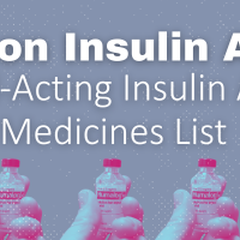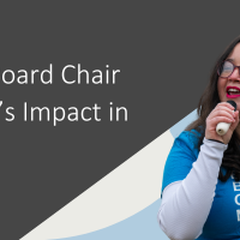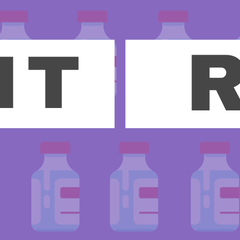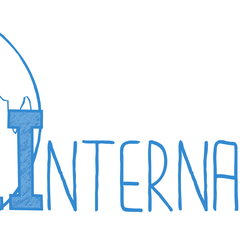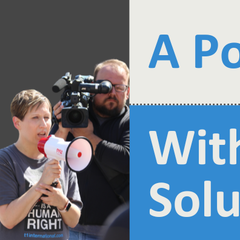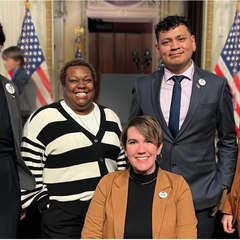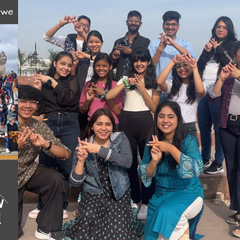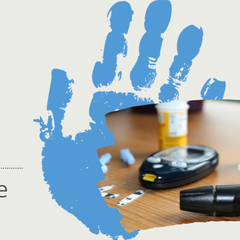
Open letter to WHO calling for urgent action on meaningful patient engagement
2 May 2024, 6:41 p.m. in #insulin4all USA, News & Statements by T1International
We are writing to propose WHO action items aimed at addressing meaningful engagement with people living with diabetes in the global coverage targets for diabetes.
As part of the first-ever global coverage targets for diabetes, member states set a global target of 100% people with type 1 diabetes having access to affordable insulin by 2030. We know that WHO has not set a goal with these types of metrics before, and we know the important role that civil society plays to ensure meaningful metrics and implementation. Understanding the importance of strong metrics and strong engagement of people living with diabetes in this process, we launched our Fight for Five Campaign. Our Fight for Five goal is that no one with diabetes, no matter where they live, should spend any more than 5% of their income on insulin and testing supplies.
Over the past months, members of our group have spoken at WHO GDC meetings three times, and have held multiple meetings with WHO staff about our Fight for Five Campaign. At each meeting, and in subsequent emails, we asked how we, and patients living with diabetes around the world, could be meaningfully engaged in the metrics-setting process for the Global Diabetes Goals.
We were told that The Global Diabetes Compact (GDC) would be the space to meaningfully input on the metrics for the Global Diabetes Goals. However, when Ms Riley presented about the metrics at the GDC, we were told that the metrics work was all in preliminary stages and therefore, there was no product to respond to. No other opportunities have been provided.
We raised our concern and question about where and when we could input on the metrics with the WHO. We requested clarity on the process and that opportunities be made for patients to weigh in before the metrics were decided. However, we received no response to our questions and requests. We feel that this lack of responses and limited interactions did not result in meaningful engagement from civil society, and there is no evidence that our input was considered or had an impact on the outcomes.
WHO’s framework for meaningful engagement of people living with noncommunicable diseases, and mental health and neurological conditions states “Meaningful engagement is the respectful, dignified and equitable inclusion of individuals with lived experience in a range of processes and activities within an enabling environment where power is transferred to people; valuing lived experience as a form of expertise and applying it to improve health outcomes” (3.5.1) and “Engagement with individuals with lived experience should be a mutual partnership, in which engagement is bi-directional, beneficial to both parties, with redistributed power and equal decision-making.” (4.1)
Additionally, “Transparency in meaningful engagement requires clear communication” and “Communication should include the requirements and expectations of the engagement, which should be decided with the individuals with lived experience, their role and the expected outcomes and outputs, including what will or might not be achieved.” (4.4)
As highlighted above, our requests for meaningful participation have been repeatedly denied: We have asked for participation on the expert committee. We asked for observership of the expert meetings. We asked to be kept informed of the process of the expert committee. Throughout, we asked for meetings with the multiple persons who had meaningful roles in the process.
The lack of meaningful engagement with civil society seeking to engage with WHO has also played out at the country-level. We have recently held our Global Day of Action for #insulin4all, calling on the Big Three insulin manufacturers to lower the prices of EML insulins in low- and middle-income countries for government contracts to $5 a box of pens and $2 a vial. We held actions in Fight for Five focus countries calling on leadership to act, including sharing a letter in Zimbabwe, social media and dance event in India, and holding a roundtable in Pakistan. In Pakistan, Dr. Sana Ajmal from Meethi Zindagi mailed members of WHO Global NCD team as well as WHO Pakistan multiple times to request WHO participation at this event, and received no response until five days before the event from the global team saying that someone else should be invited instead. After reaching out to the new contact with reminders, she heard back with regrets. No one in WHO global office was able to connect her with a relevant person in WHO Pakistan either.
We know that WHO has meaningful civil society engagement in other disease areas and in other countries. We would like to continue conversation with WHO on this topic and request genuine and meaningful, not tokenistic, patient engagement. In addition to WHO’s framework on meaningful engagement, T1International previously developed ethical patient engagement principles, which have been used by the global diabetes community.
Supportive and timely actions from WHO would include:
- Direct email introductions to WHO staff managing NCDs in Pakistan, India, and Zimbabwe.
- An update on how WHO is defining “affordable” in the context of insulin and blood glucose monitoring pricing, including information on specific actions and timelines established to achieve the goal of affordable insulin and glucose monitoring for all by 2030.
- A commitment for prompt and transparent ongoing updates and communication regarding metrics for the Global Diabetes Goals; including naming clearly when patients actually have the opportunity to input or when they are receiving updates about decisions already made by others.
- An ongoing and long-term commitment for clear and transparent processes about how people living with diabetes can weigh in on decision-making, at what level, and how their input will be used (or not used).
We believe that by taking these immediate steps, we can start to build the civil society support needed to make meaningful progress on the global coverage targets for diabetes.




